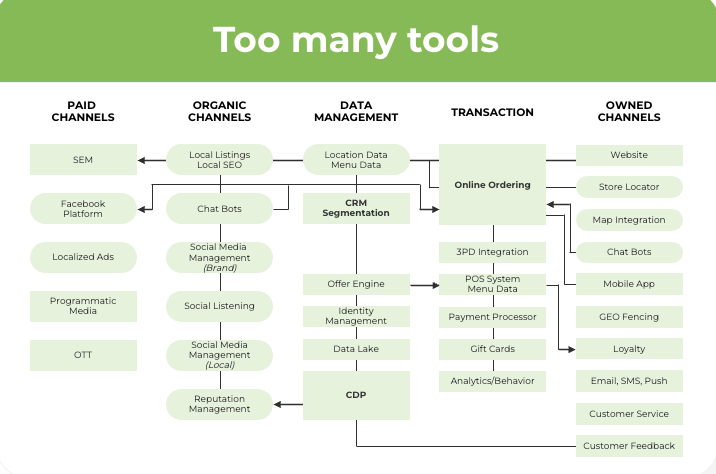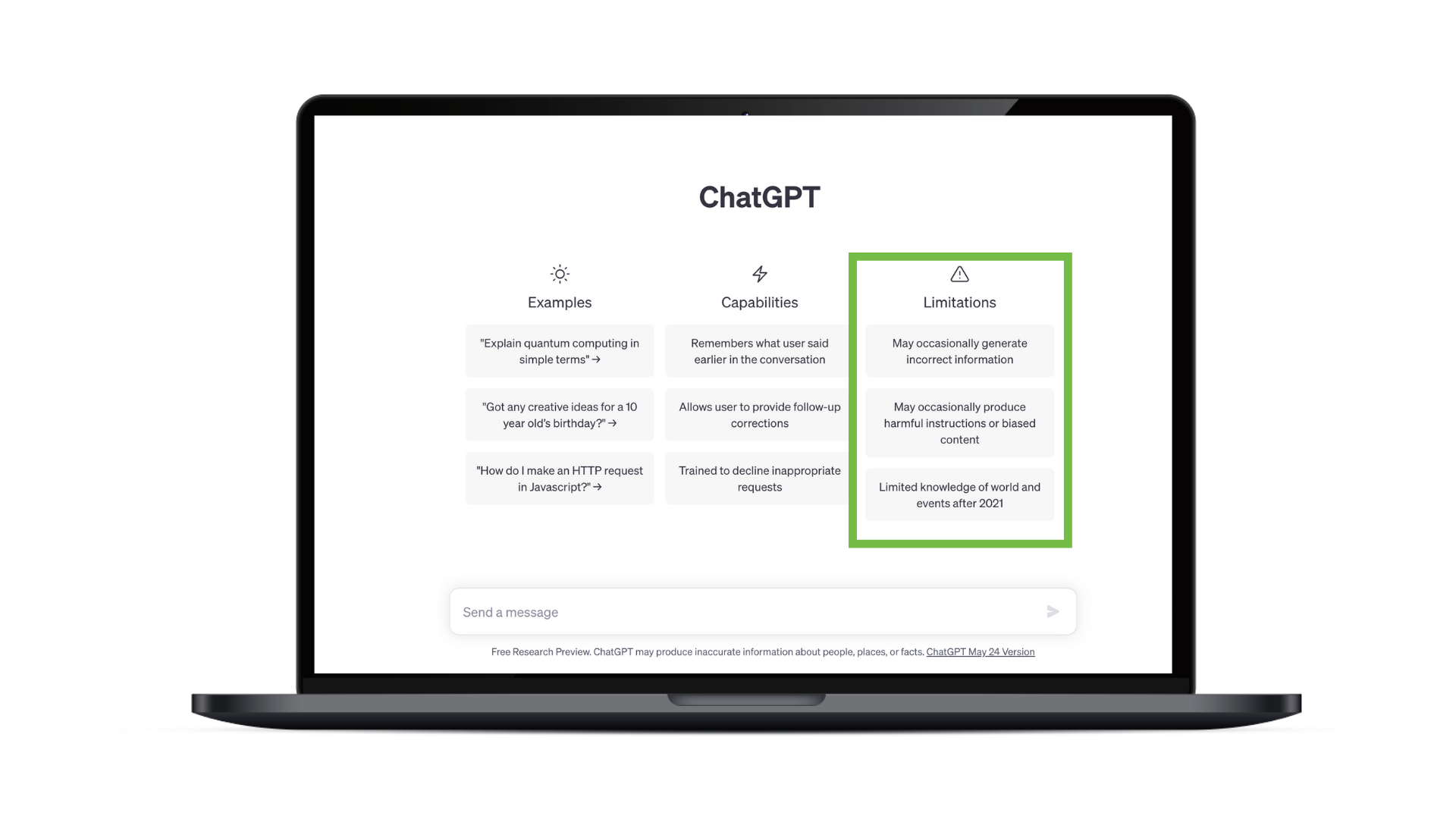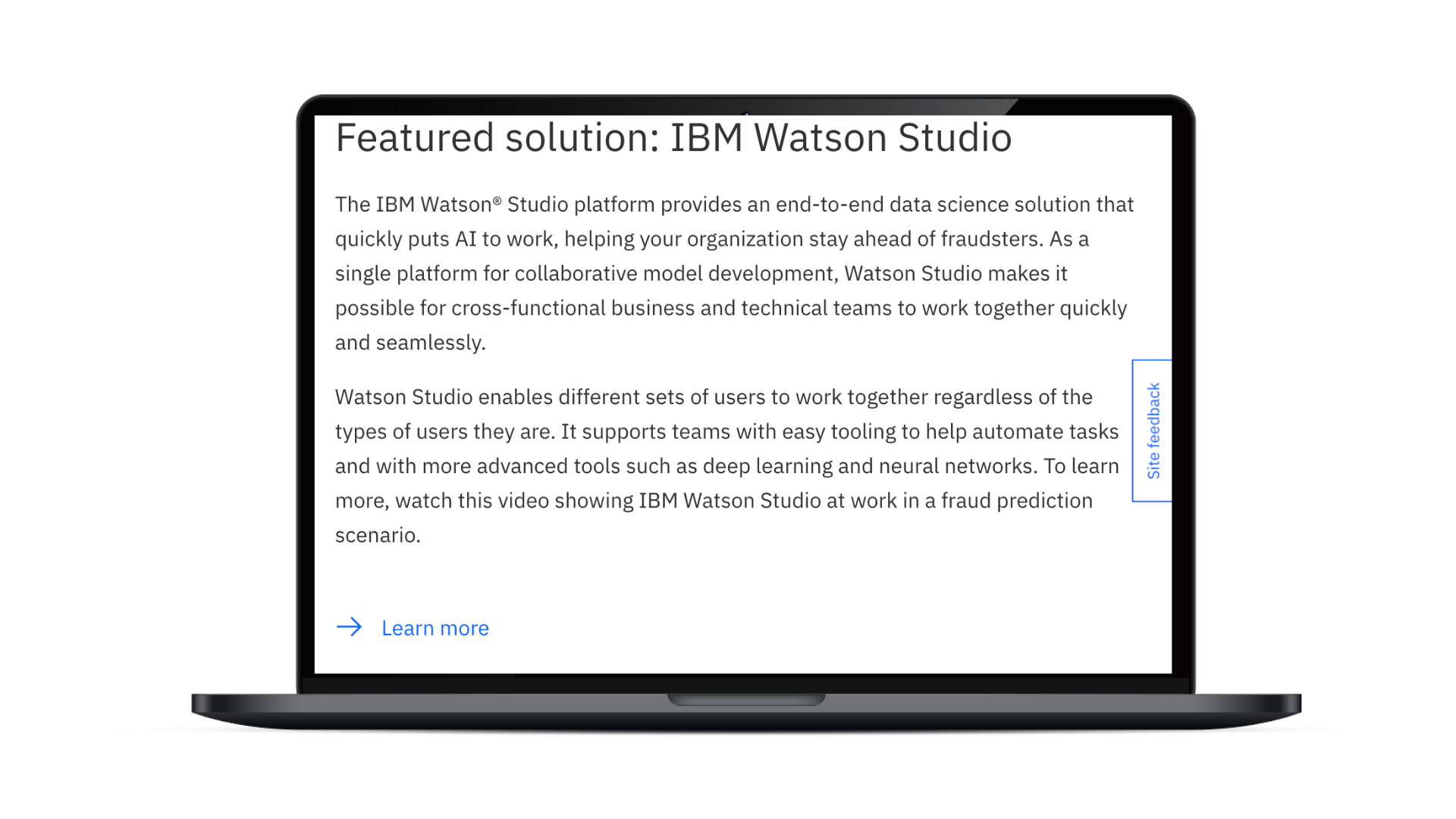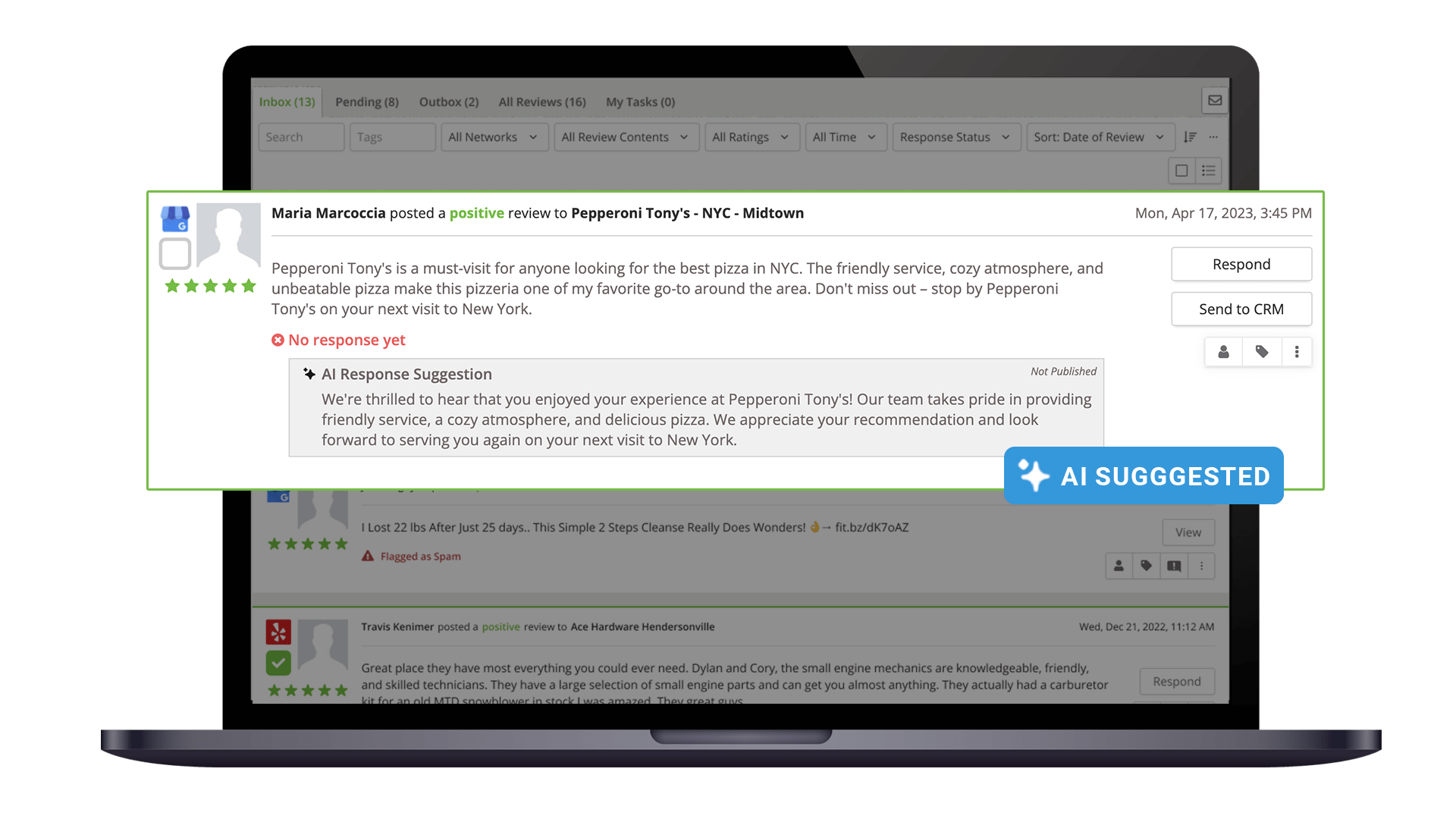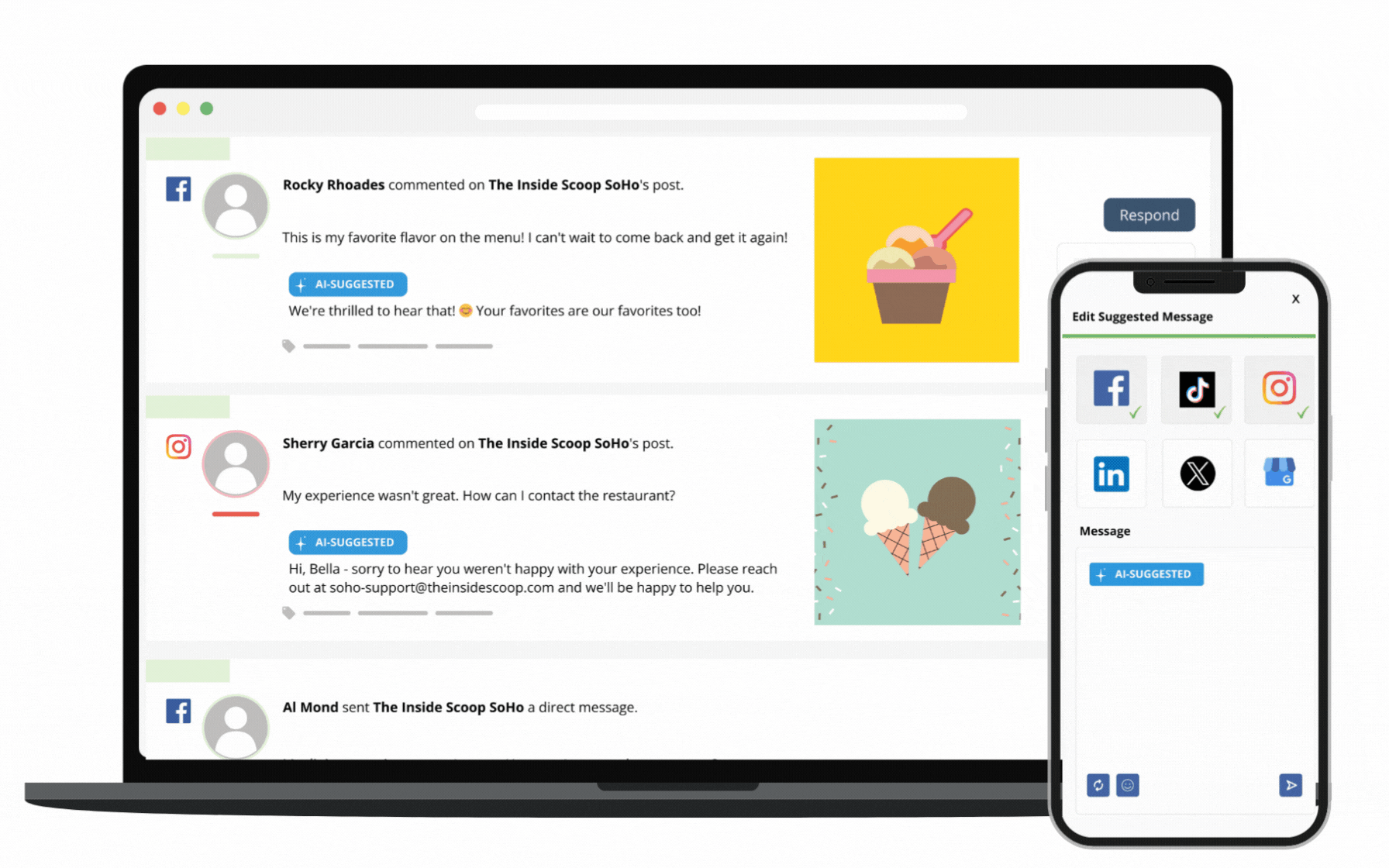5 AI Challenges for Multi-Location Marketers & How to Solve Them
5 AI Challenges for Multi-Location Marketers & How to Solve Them
Although artificial intelligence (AI) can help marketing strategies become more efficient and effective, marketers face common challenges when leveraging the technology. Especially those with multiple business locations. Our research found that 44% of marketers believe introducing new AI tools tends to cause confusion.
Don’t let challenges or concerns around AI hold your brand back from experimenting with these tools and reaping their benefits. Within this blog, we’ll break down the top five most common challenges marketers face when leveraging AI and solutions to each challenge.
If you’re unfamiliar with how marketers incorporate AI into their strategies, our blog on using AI in multi-location marketing can help.
Now, let’s get into the challenges and their solutions!
1. Integration with Existing Systems
One of the most common challenges marketers face when getting started with AI is if and how the technology will integrate with existing solutions. Correctly integrating new AI can be complex, often requiring significant technical expertise and resources. This delays the implementation and adoption.
For instance, does the tool that your brand is using to manage social media have AI offerings? If not, can it integrate generative AI tools like ChatGPT or Jasper? If the answer is no, you’re left with two options — using the generative AI tools separately and adding to your marketing technology (MarTech) stack or not using the technology until your current systems can support it.
Both options present a challenge and may result in too many tools, which can seem daunting and time consuming for marketers with a lot on their plate. Waiting to use AI altogether presents a separate challenge — falling behind the competition.
Solution: To solve this issue, your brand should look for an AI-driven and consolidated solution that allows you to manage multiple aspects of your multi-location marketing strategy. Need help finding the right tool for your brand?
Our recent blog shares ten questions you should ask MarTech vendors about their investment in AI.
2. Lack of Quality Data
A fragmented tech stack can also lead to concerns around data. Marketers may also question the quality and credibility of data when using AI. For instance, with social media, AI can monitor and analyze user-generated content, interactions, and trends to extract insights for targeted campaigns. In reputation management, AI can track online mentions, sentiment, and customer feedback across platforms to assess brand perception.
This begs the question, how can you ensure that the data you’re receiving is accurate? Can you measure the same key performance indicators (KPIs) you’ve been tracking in the past?
Lack of information around these questions can present a challenge, preventing marketers from using AI.
Solution: Your brand can find a tool that allows you to consolidate your MarTech stack while adding an AI layer over different areas of your strategy. This aims to harmonize your data and processes, creating a solid data foundation.
3. Understanding and Trusting AI Outputs
Another common challenge around AI? Marketers often don’t understand or trust AI outputs.. At times, generative AI tools can provide unexpected or inaccurate information, leading to skepticism and underutilization.
Even ChatGPT itself highlights that its limitations include:
- Periodically generating incorrect information
- Occasionally producing harmful instructions or biased content
- Having limited knowledge of world events after 2021
For marketers, a big fear is often sharing incorrect information, and if AI increases the likelihood of misinformation, many marketers may hesitate to use the technology.
Solution: Human oversight is always needed when using AI! While AI is a great technology to help increase efficiency and optimize output, a human always needs to double-check its work.
Incorporating human oversight into your plans when using AI will help prevent mistakes and make your team feel more comfortable leveraging it.
4. Privacy and Compliance Concerns
According to a recent survey, 57% of marketers’ most significant concerns about using AI were around data security and privacy. AI often raises privacy and compliance concerns related to data handling and consumer privacy regulations, requiring careful navigation to avoid legal and ethical issues.
AI relies heavily on data, and when used in marketing, it often processes personal information to target and personalize campaigns. This raises concerns about data privacy, consent, and compliance with regulations like the General Data Protection Regulation (GDPR) and the California Consumer Privacy Act (CCPA).
Failure to comply with regulations can result in:
- Hefty fines
- Legal actions
- Damage to brand reputation
As a result, marketers may hesitate to embrace AI fully or limit its use to avoid potential legal and reputational risks.
Solution: Marketers can overcome privacy concerns around AI by implementing transparent data collection and processing practices, obtaining explicit consent from consumers for data usage, and prioritizing data security, as seen below.
You should also stay updated on relevant regulations and use AI tools that prioritize privacy and compliance.
If you invest in MarTech incorporating an AI component, ask how they prioritize privacy!
5. Constraints Around Leveraging AI
Last but not least, confidence and familiarity with AI are challenges marketers face when using the technology. While 68% of marketers feel that the current pace of AI development is moving at the right speed, there are still constraints around learning the technology and using it effectively.
Navigating the ever-evolving landscape of AI and staying updated on its constant developments might make integrating AI into marketing strategies seem overwhelming and can often become a roadblock. It’s challenging to implement AI-powered initiatives without someone willing to learn how to implement and use the AI.
In addition to confidence, budget is another constraint that many marketers face. For instance, a recent SOCi survey found that 44% of brands need more budget to start utilizing AI tools, while 62% desire more time for understanding and implementing AI.
Solution: To combat this challenge, multi-location brands must equip their teams with the tools and knowledge to feel confident leveraging AI. Numerous resources and courses are available to train those interested in understanding how to use AI in marketing. AI can also increase efficiency and ultimately improve ROI, which can help make the case for spending more on the technology.
Additionally, resources like our CMO’s Planning Guide to Navigating AI Transformation in 2024 can help!
Find the Right AI Solution for Your Multi-Location Brand
Arming yourself with knowledge about what challenges you may face when incorporating AI into your marketing strategies and how to solve them will give you a leg up on the competition. What’s next? It’s time to find the right AI solution for your multi-location brand.
Look no further than SOCi! SOCi is the CoMarketing Cloud for multi-location enterprises.
Our AI automation layer, SOCi Genius, leverages advanced data science and best-in-class generative AI to function as a data scientist and marketer for each location. For instance, our Genius Reviews solution uses AI to generate on-brand responses to online reviews and ratings in seconds.
Additionally, our recently released Genius Social allows you to interact with social media engagements and generate highly engaging and location-specific content, providing a consolidated MarTech stack to leverage AI effectively.
We also have a robust data privacy and security approach, a focus on AI accuracy, and a dedication to customer support and training. Ready to learn more? Request a demo today!
